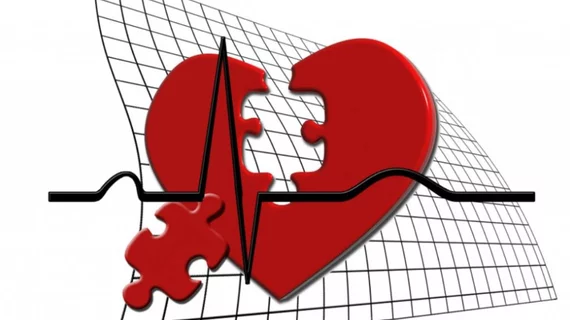CULPRIT-SHOCK confirmed: Another study supports culprit-only PCI
A retrospective study of patients with acute MI complicated by cardiogenic shock presented at SCAI 2018 supported the message from the randomized CULPRIT-SHOCK trial: Culprit lesion percutaneous coronary intervention (PCI) is associated with lower mortality than multivessel revascularization.
Lead author Bilal Iqbal, MBBS, PhD, and coauthors analyzed the outcomes of 649 patients with multivessel disease who had MI and cardiogenic shock. After risk adjustment, those who received PCI on the culprit lesion only had 37 percent lower mortality at 30 days and 28 percent lower mortality at one year than those who received multivessel PCI. The results were similar in a propensity-matched analysis.
“The comparison between culprit-only and multivessel intervention is a hot topic of conversation and debate in our field, and the results of our study add to the recent CULPRIT-SHOCK trial and help us better understand the positive outcomes of a culprit-only approach,” Iqbal said in a press release issued April 26 in conjunction with the SCAI presentation.
The researchers analyzed data from the British Columbia Cardiac Registry on PCIs performed from 2008 through 2014. Patients were only included in the analysis if they had clinical evidence of cardiogenic shock and stenosis greater than 70 percent in at least two epicardial coronary arteries.
Crude mortality rates were significantly lower for culprit-only revascularization at both 30 days (23.7 percent versus 34.5 percent) and one year (32.6 percent versus 44.3 percent). About 64 percent of the patients in the study received culprit-vessel PCI.

